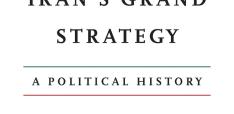How Should the World Deal with an Unpredictable, Autocratic America?

Mark Beeson urges the international community to organise a collective response to America’s unilateralism.
For nearly eighty years we have been accustomed to the United States playing what former Secretary of State Madelaine Albright described as an ‘indispensable’ role in international affairs. As far as most Americans and allied states were concerned this was overwhelmingly seen as a good thing. Yet claims about the benign, stability-enhancing nature of American hegemony always looked rather implausible, selective and overblown. In the wake of the US’s illegal attack on Iran, they look absurd.
For policymakers who grew up in an era of American economic and strategic dominance, however, it is almost impossible to imagine anything different. Unfortunately for them, they may have to: the old order is being disassembled before their eyes. Even for the truest of believers, these are testing times. Never has Gramsci’s famous aphorism about the old world dying looked more appropriate, except that the new order has not even been conceived, let alone struggled to be born.
Far from being an anchor of stability, the United States has become a source of chaos and unpredictability, both at home and abroad. This has become especially evident under the erratic leadership of Donald Trump, but he may be a symptom as much as a cause. As the Cold War ended and an era of apparent peace and progress beckoned, James Rosenau explained why ‘turbulence’ was likely to be a continuing feature of world politics in a book that looks rather prescient in retrospect.
But American foreign and strategic policy can minimise or accentuate the upheavals. In the period after World War 2, it played a stabilising role, that was generally accepted and even welcomed, especially by recipients of the Marshall Plan. Under the Trump administration, even supposed friends and allies are having to rapidly adjust to the implications of America first. Ingratiation does not look like a viable or sustainable strategy.
The way we were
While history is replete with unlearned lessons, especially about the futility of war, there are also moments of cooperation and enlightened leadership that suggest other paths are possible. If there is one thing we can agree on at present, perhaps, it’s that our present collective trajectory might be delicately described as sub-optimal, not least because of the actions of the world’s most powerful country.
The impact of American hegemony hasn’t always been so destructive, however. On the contrary, in the aftermath of World War 2, the US played a truly indispensable role in shaping a post war order from which many benefitted. True, the principal beneficiaries were primarily the core economies of industrialised Europe and Japan, but this shouldn’t blind us to the scale of what was an unprecedented achievement.
Not only did the Americans facilitate and actively support the reconstruction of some of its former enemies, but its actions eventually led to the creation of what is now the European Union; arguably the most effective expression of institutionalised transnational cooperation the world has ever seen. The EU is far from perfect, but like the United Nations, which also emerged at this time, it’s the best we’ve managed collectively so far.
Even in Japan, American influence helped to entrench both democracy and a revulsion of militarism. Japan also became the foundation of the ‘East Asian miracle’ that did so much to stabilise a region formerly synonymous with conflict and distrust. It is testimony to how much has changed, that Japan, South Korea and other US allies are being encouraged to increase defence spending, as are the ‘freeloading Europeans’, of course.
It is entirely possible that Trump’s belief that the EU was created to ‘screw’ America is simply a reflection of his boundless ignorance. He may also not realise that part of America’s enlightened self-interest flowed from the existence of the Cold War’s bipolar order: the Soviet Union represented a formidable strategic opponent, and even a role model for many of the global south who still bore the scars of capitalism’s collapse during the Great Depression. Cooperating to save both democracy and capitalism seemed like a good idea.
Indeed, one of the great lessons of the interwar period and its aftermath, according to Charles Kindleberger’s influential analysis was that economic - and by implication strategic stability – requires enlightened leadership and the provision of vital public goods, such as an open international economy, a stable currency regime and a market of last resort. It is hard to imagine anything less like the economic policies and thinking of Trump and his coterie of advisors and flunkies, some of whom really ought to know better.
The way we are now
It is difficult to overstate quite how different the world now looks now. While the US remains the world’s most powerful strategic and economic actor, it is being challenged by a genuine peer competitor in the form of China, which wasn’t on the geopolitical radar eighty years ago. Even more remarkably, perhaps, the Soviet Union has not simply disappeared as a balancing force with which American policymakers must reckon, but Trump has an unfathomable admiration for Vladamir Putin.
It's important to remember that it didn’t have to be this way. The end of the Cold War offered a real opportunity to draw Russia into the ‘international community’ and ease the trauma of imperial collapse. Instead, it suffered economic ‘shock therapy’, which infamously contained too much of the former and not enough of the latter. The result was the creation of powerful oligarchs and the emergence of Putin, who was and is determined to avenge Russia’s humiliation.
And yet, the end of the Cold War really did offer the proverbial window of historical opportunity, which Bill Clinton squandered. True, Clinton recognised that globalisation opened up new opportunities for American capital, but he also took the opportunity to expand NATO to Russia’s borders while it was in no position to resist.
The temptations of unipolarity are also difficult to resist, especially when they are championed by influential ideologues or supported by pliant allies. George W. Bush’s decision to invade Iraq is one of the greatest unforced strategic errors in history and ought to have been a sobering illustration of the limits of what even the greatest powers can achieve. If the Trump administration is incapable of realising this, all the more reason to try and inject some ‘balance’ into an international order that is rapidly spinning out of control.
Given that ‘realist’ thinkers have arguably got us to where we are now – facing the prospect of endless wars, unwinnable geoeconomic competition, and an unaddressed climate catastrophe – I’m reluctant to draw on their supposed expertise for solutions to problems they were instrumental in creating. But as realists might say, we have to deal with the world as it is, not as we would like it to be.
The way we could be
One of the key ideas of the realist world view is that it’s vital to ensure that no state becomes so powerful that it dominates the international order in which all states are embedded. The seminal case study of this – very effective – principle in action was the Concert of Europe, which emerged in the aftermath of the Napoleonic wars in the 19th century. Collective security was underpinned by cooperation against a dangerous, potentially destabilising hegemonic power.
Trump’s disdain for European attempts to resolve the war between Iran and Israel through diplomacy was evident before the attack on Iran. Trump has little interest in collective efforts to solve international conflicts, and his unilateral actions will only aid autocrats like Netanyahu and Putin. Europeans have recognised that the US is an unreliable partner and are increasing defence spending as a result. Whether this is a cause for celebration is another question.
Either way, if the sight of tens of thousands of Palestinian women and children being slaughtered isn’t enough to jolt the ‘international community’ into action, perhaps economic self-interest will be. The Trump administration has shown little regard about or understanding of the economic damage its punitive tariffs, exploding debt levels and undermining of the dollar is doing to other countries, or even the US itself. The next crisis of capitalism cannot be far off.
Governments that attempt to ingratiate themselves with Trump are on a fool’s errand: giving in to bullying only encourages more of the same. If the US doesn’t want to be part of liberal economic order it helped to create, other countries should pick up the mantle. There are already successful examples of trade agreements that do not include the US, such as the Asia-Pacific’s Regional Comprehensive Economic Partnership (RCEP), which accounts for 30% of the world’s population and GDP.
A ‘coalition of the concerned’ would likely attract even more potential partners and would be an infinitely preferable way of sending the US a message than the realist reliance on power politics underpinned by military might. The only other countries likely to object to such a coalition are Israel and Russia, which tells us something about the nature of contemporary American diplomacy and strategic policy.
Simply trying to organise a collective response to America’s destructive unilateralism might be enough to make the Trump administration think twice about its actions. It might also help the famously self-absorbed population of the US to recognise that much of the world doesn’t share their opinion about America’s manifest destiny and the supposed benefits of its primacy.
Americans might even consider how their own country became hostage to the whims of a megalomaniacal, narcissistic autocrat. We must encourage them to use their celebrated checks and balances before they disappear for ever and their own country descends into violence.
Mark Beeson, Adjunct Professor, Australia-China Relations Institute, University of Technology Sydney.
Photo by Markus Spiske


